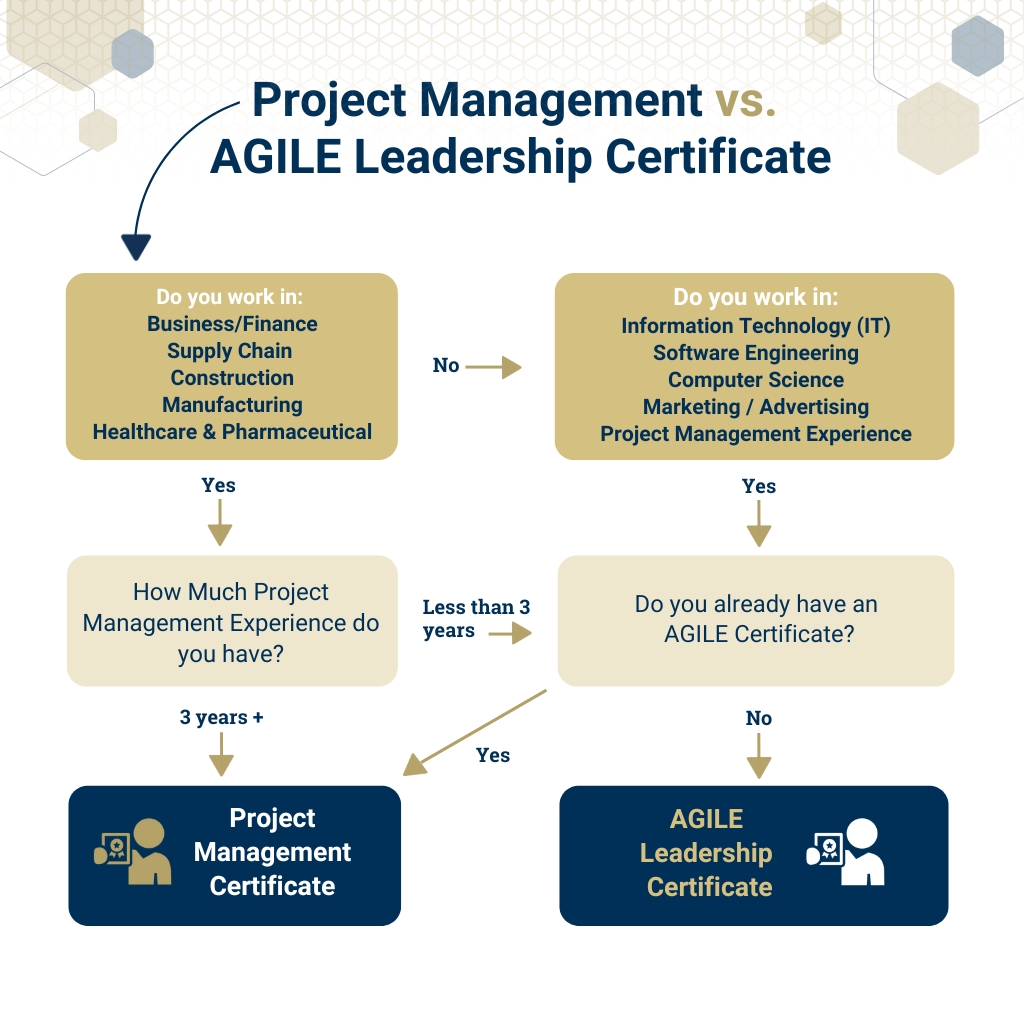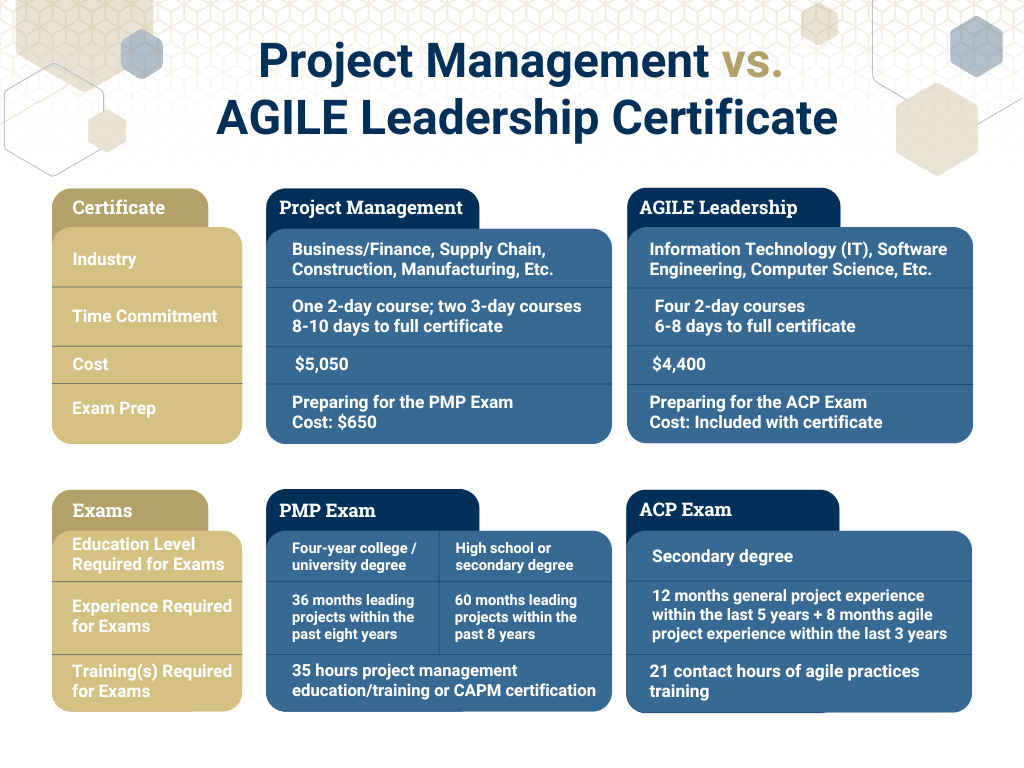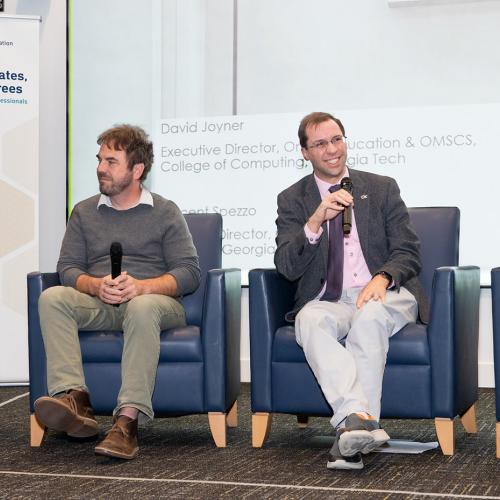The Value of AGILE
AGILE is an innovative project management methodology that champions adaptability, iteration, and collaborative efforts and is applicable in any environment that attempts to satisfy stakeholders.

As technology advances and capabilities climb, projects and solutions are growing more complex. To get things done, organizations are relying increasingly on the human skills of management, collaboration, and adaptability – the skillset of an Agile project manager.
WHAT IS AGILE PROJECT MANAGEMENT?
According to the Project Management Institute (PMI), “Project management is the application of knowledge, skills, tools, and techniques to project activities to meet project requirements. It’s the practice of planning, organizing, and executing the tasks needed to turn a brilliant idea into a tangible product, service, or deliverable.” This skillset is needed in every organization that aims to deliver something for its stakeholders and can be applied in nearly every industry across a variety of environments, scopes, and needs.
Agile is a specific approach to project management. Like its name suggests, it is flexible and iterative, emphasizing collaboration and continuous improvement over the course of several iterations, which makes it highly attractive to companies looking to provide more adaptable solutions for their customers.
The Agile methodology breaks down a project into a series of short cyclical phases, incorporating customer feedback at the end of each one. This real-time data allows teams to adjust to changing needs, desires, and circumstances along the project timeline.

IS AGILE PROJECT MANAGEMENT WORTH MY TIME?
Growing Demand for Project Management
Across industries in the United States, project management skills are in demand now more than ever. A recent study from Lightcast Data shows that the number of project management jobs in the United States has climbed nearly 100% over the past decade, from around one million in 2013 to nearly two million in 2023.This number is projected to grow another 12.7% by 2033.
Adaptability Maximizes Business Value
As AI and technology heighten the expectation for customization, adaptability is becoming more and more essential for businesses that want to deliver for their customers.
With its fast feedback cycles, Agile project management maximizes value for customers. Providing a space for the customer to share their voice allows teams to identify problems or changes early in the project lifecycle and adapt as needed. As a result, teams can execute the project more closely to the customer’s vision. And by releasing new iterations of project deliverables at each phase, Agile teams also deliver measurable wins over the course of the project.
Adaptability Maximizes Personal Value
Agile certification also equips professionals themselves to adapt, a valuable human skill to set yourself apart in an ever-shifting workplace growing more dominated by technology.
“Professionals who have proven training and certification in Agile are in high demand by organizations,” explained Lee Jordan, Project Management and AGILE Leadership instructor at Georgia Tech. “As AI disrupts many careers, those with Agile certifications remain competitive with soft skills such as relationship building, collaborative leadership, strategic thinking and creative problem solving.”
Soft skills such as these enable professionals to produce better results for their organizations. A Pulse of the Profession report for PMI has shown that organizations that embrace agility and adaptability complete more projects successfully than those that do not, 75% versus 56%. With advanced soft skills, professionals work more effectively across disciplines, levels, and stakeholder interests, fostering more productive collaboration to drive better and faster results.
Professionals trained in Agile also benefit from understanding a variety of tools, techniques, team approaches, and delivery systems. This breadth of knowledge empowers Agile project managers to approach a wide set of projects and challenges with confidence in both their knowledge and their ability to learn. Their versatility also positions them for further growth through new opportunities – the same Pulse of the Profession report from PMI shows that 86% of professionals certified in Agile qualified for new opportunities.

WHAT IF I DON’T HAVE EXPERIENCE IN
PROJECT MANAGEMENT?
If you’re just getting started in the project management field, earning your Agile Certified Practitioner (ACP) credential is a great place to start.
“I would do the ACP first, and then go for the PMP,” says Joe Sisto, Project Management and AGILE Leadership instructor at Georgia Tech. “The PMP is far more difficult; it’s a much harder exam requiring a lot more test prep and class work.”
The ACP exam requires less preparation than the PMP exam, with only 120 questions compared to 180 questions on the PMP. Furthermore, the PMP requires more demonstrated work experience as compared to the ACP.
PREPARING FOR THE ACP EXAM
While both exams require you to complete a certain number of educational hours to qualify, you can complete the required hours for the ACP by enrolling in the Georgia Tech AGILE Leadership Certificate offered through Georgia Tech Professional Education (GTPE).
“The Georgia Tech AGILE Leadership Certificate will provide you with the ability to work with projects using the Agile Framework,” Sisto says. “Our combination of classroom learning, exercises, and real-world instruction will give you the means to apply your knowledge at work.”
Strategic Curriculum
Over a series of four strategic courses taught by experienced ACPs, the Georgia Tech AGILE Leadership Certificate provides the foundation for the Agile skillset and prepares students to ace their ACP exams. Course topics include Practicing Agile, Advanced SCRUM Workshop, Agile Project Management, and Preparing for the ACP Exam.
Throughout the course curriculum, you’ll master the four values and twelve principles of the AGILE Manifesto, gain essential program management practices that align to Agile principles and values, and integrate an Agile team mindset and structure that enables value delivery.
Visit the AGILE Leadership Certificate page to learn more.
Credits
Writer: Rachel Meyer
Editor: Kelly Pierce
Digital Publisher: Kat Bell

